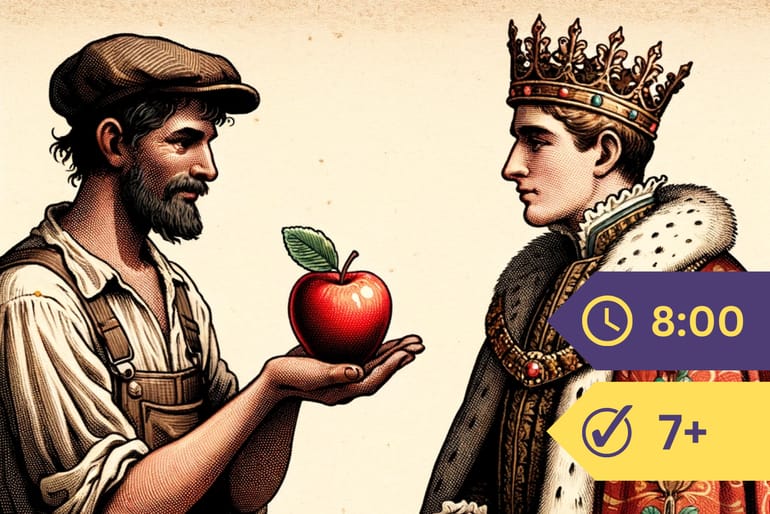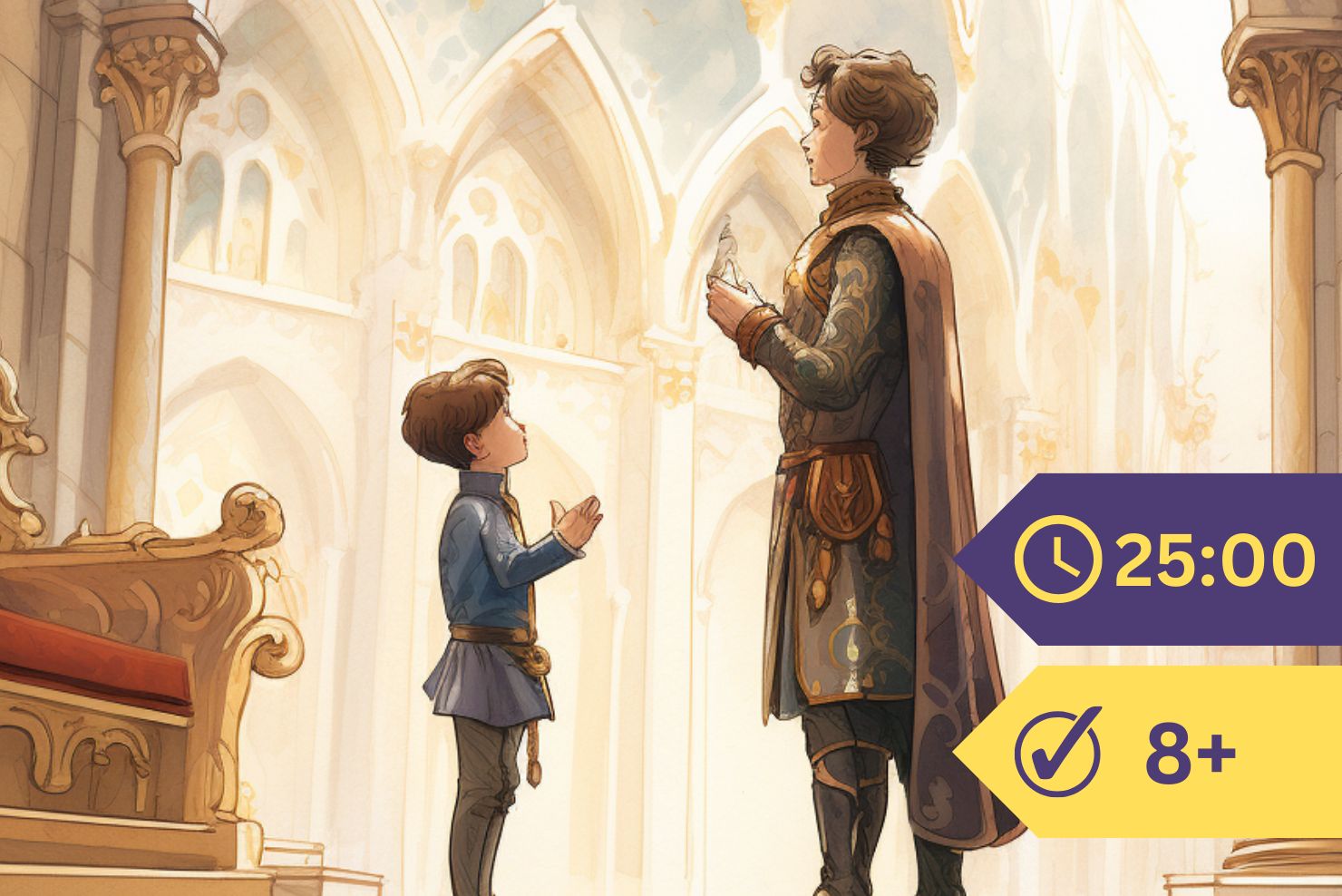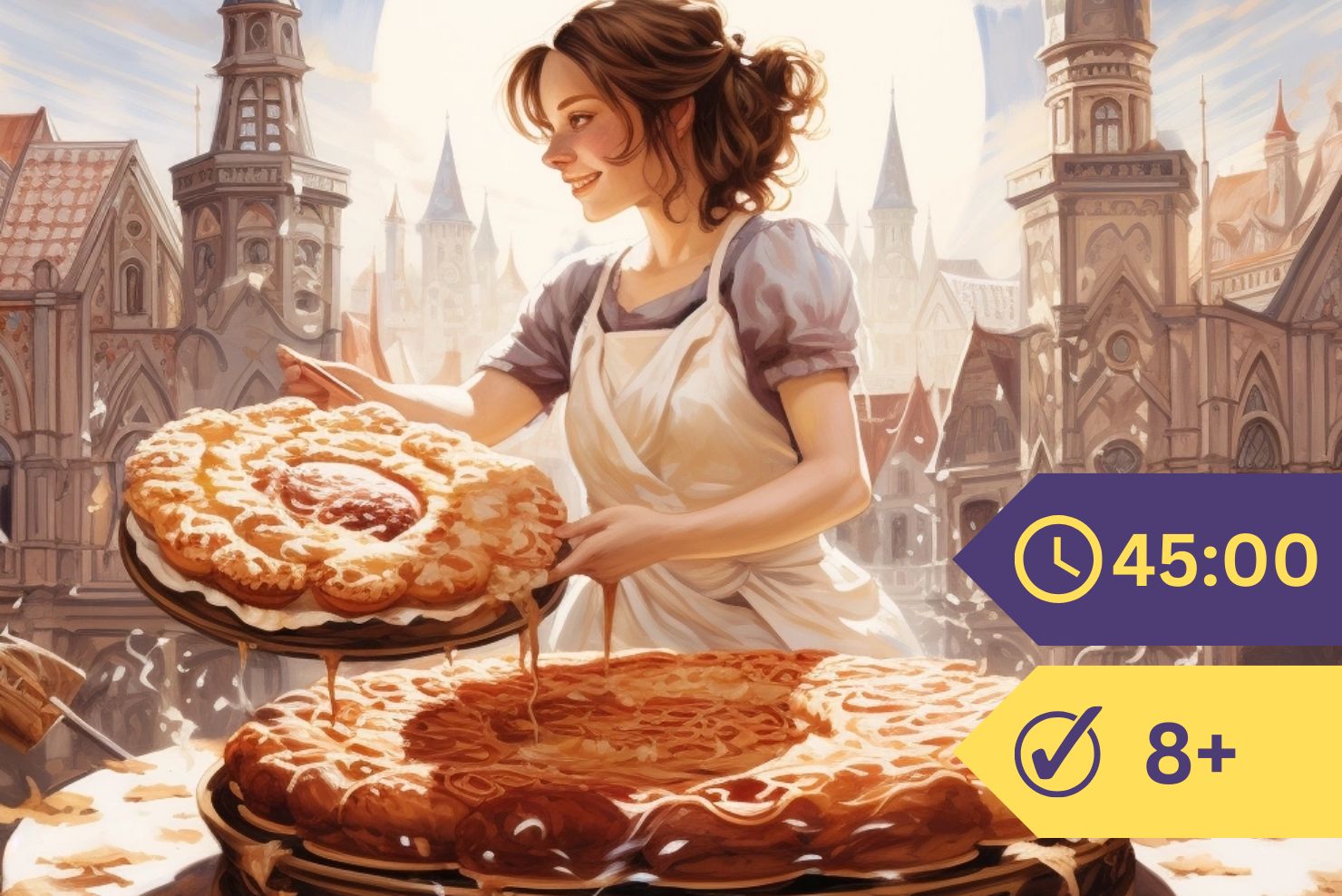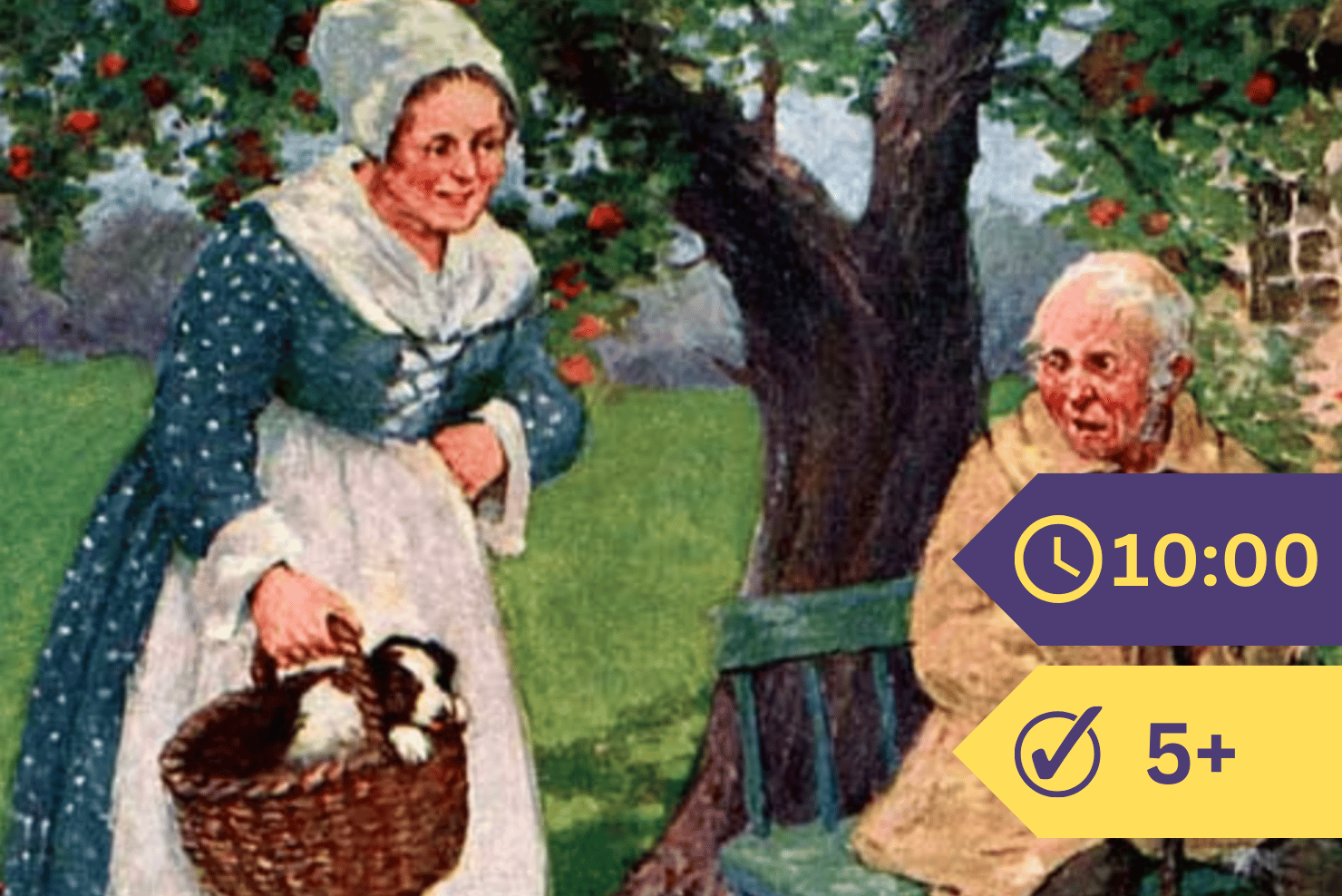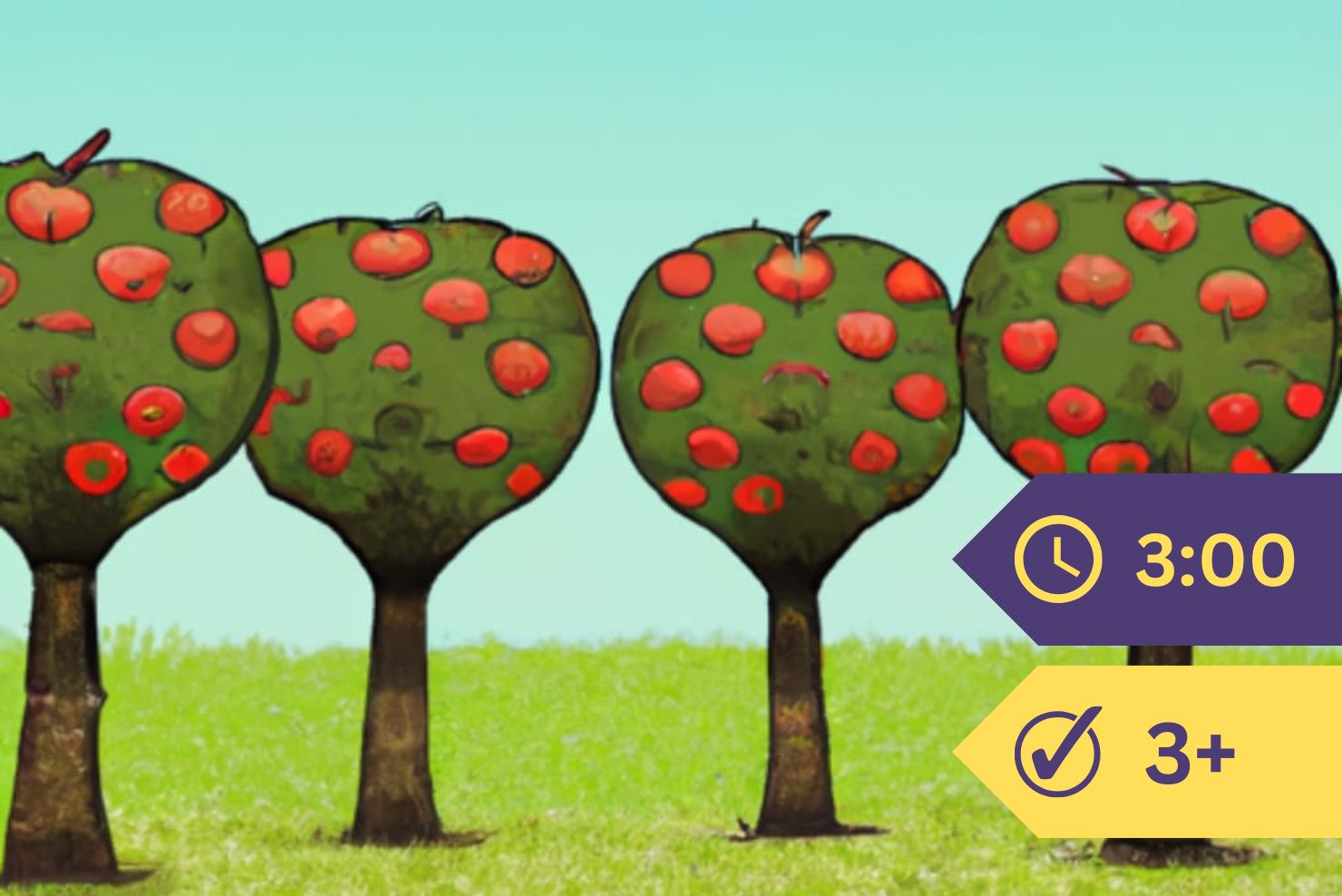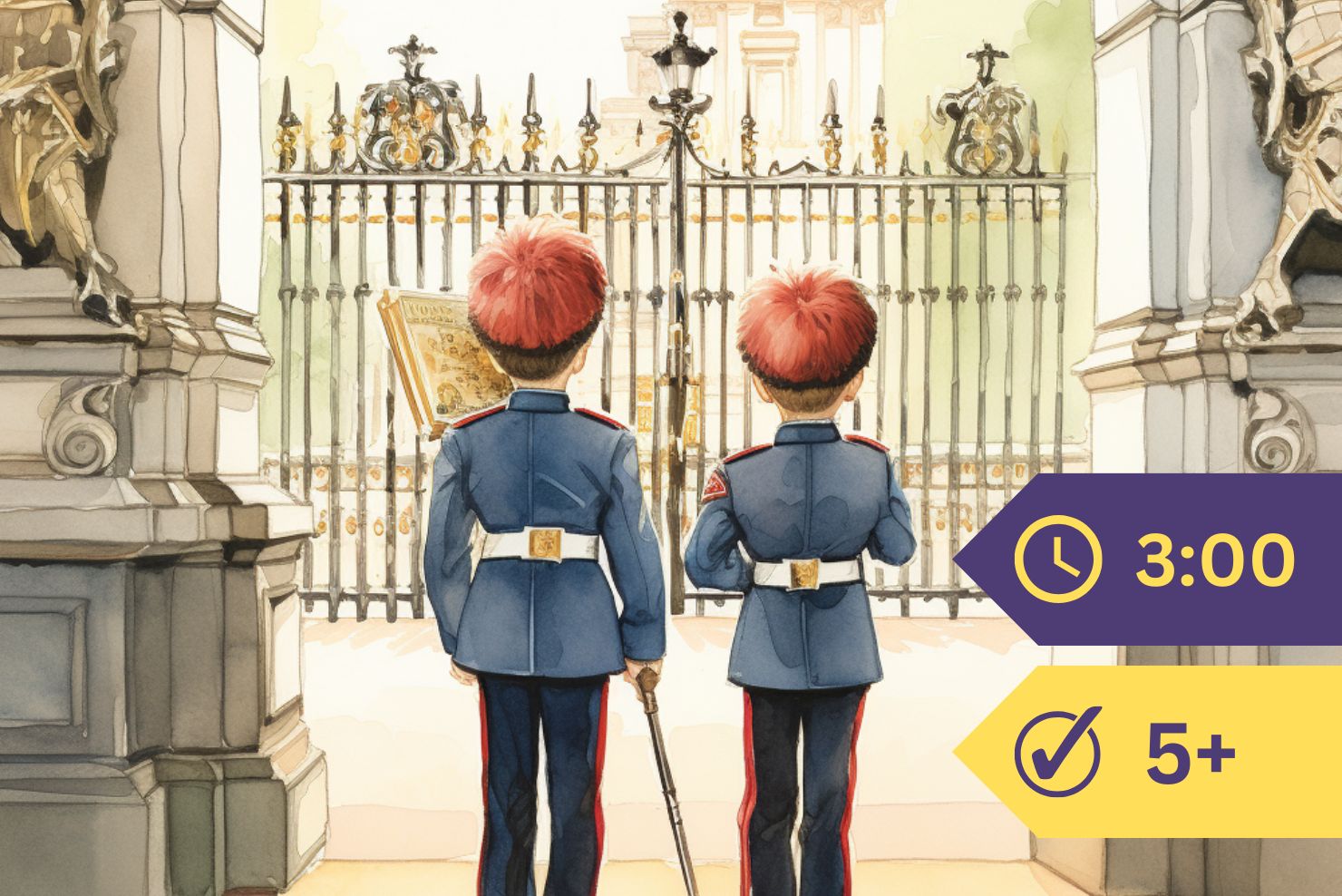Once upon a time, there was a poor gentleman who married a wife as poor as himself. She had no more dowry than if she were a church-mouse.
Yet when the wedding was over and the farewells had all been said, Father-in-law came running out in haste.
“You shall not go empty-handed,” said he to his daughter; and bidding her to leave it unopened till she had come to her new home, he thrust a parcel into her hand.
“Well,” thought the poor gentleman, “I have done better than I knew;” for though he loved his wife with all his heart, he was not sorry to have a little help to keep the pot boiling.
“Let us see what you have,” said he; but his wife shook her head.
“My father told me to leave it unopened till we reached our home” she said.
“True,” said the poor gentleman. “And an obedient daughter will make a good wife.”
He did not speak of the gift again but bent his mind on guiding Moll, the mare that carried them, into the easiest and pleasantest ways that he could find. In all good time, they came to their home, and no sooner had they crossed the threshold than the wife opened the parcel. ‘Look,” she cried, holding up a tiny sapling no larger than a switch. “It is a growth of the great apple-tree that stands by the doorstone of my father’s house.”
Do what he could, the poor gentleman lost countenance at the sight of such a gift; but when he saw how pleased his wife was with it, he put his disappointment from him.
“It will bear us many a rosy apple for a dumpling or a pie,” said he; and he was for fetching a spade straightway and planting the little apple tree by the garden gate.
‘But,” said the wife, “let us plant it by our doorstone. Then whenever I look out I shall see it and be reminded of my old home.”
“A good thought,” said the poor gentleman; and he planted the tree just where his wife wanted it and was well pleased with his work.
The little tree thrived beyond all expectation. It was not long in the ground when it began to stretch itself toward the sun and to send out tiny branches and green leaves. By its third summer, it cast a shade upon the doorstone. And it blossomed and bore fruit a year ahead of its time!
It was a proud day for the poor gentleman and his wife when the first ripened apple glowed among the branches, a rosy-red, streaked-with-gold, mouth-tempting apple! “Just like the ones that grew on my father’s tree,” said the wife proudly.
The poor gentleman was for fetching a knife and dividing the apple between his wife and himself straightway. But the wife had another plan.
“It is good luck to give away the first fruit of a tree,” she said. “It will bear the better for it.” And she was just about to suggest that they give the apple to the parson when to her surprise, her husband spoke out:
“Then I shall take it to the King,” said he.
“The King!” cried his wife. “But you have nothing to wear to the King’s court.”
“A threadbare suit may hold an honest man and a loyal man and a gentleman,” said her husband; “and as for lace, let Jack-a-dandy wear it if he will. I’ll go as merrily without it.” And he went straightway to saddle Moll, the mare.
While her husband was doing this, the wife lost no time in pressing a ruff for his neck, and brushing his suit, and putting a new ribbon on his hat. And so skilful was she that when the poor gentleman started out on his journey, she was very well pleased with his appearance.
The apple, wrapped in a napkin white as a housewife’s art could make it, lay in his pocket, and he was careful in his riding not to go over-fast lest he bruise the fruit, which cautious plan well suited Moll, the mare.
It was late when he reached London Town, and he stopped at an inn for the night, but he was up and off to the King’s palace in the early morning.
Many were at the court that day, and the poor gentleman having none to herald him and nothing but his name (though that was as old and good as any), to vouch for him, had to wait long for his turn to speak to the King.
Everyone who came before the King that day had a favor to ask, or a plaint to make. One wanted a company of soldiers, and another an estate. This one was vexed because the King preferred his brother to himself, and that one was cast down because he could not have what was his neighbor’s. Even the court ladies came with pretty smiles and curtsies to beg a masque or ball.
It was weary work being a King, thought the poor gentleman, who saw and heard much while he bided his time patiently.
At last, however, the suppliants were answered, the courtiers relaxed themselves; for a moment the King was left alone; and seizing his opportunity, the poor gentleman stepped forward, hat in hand.
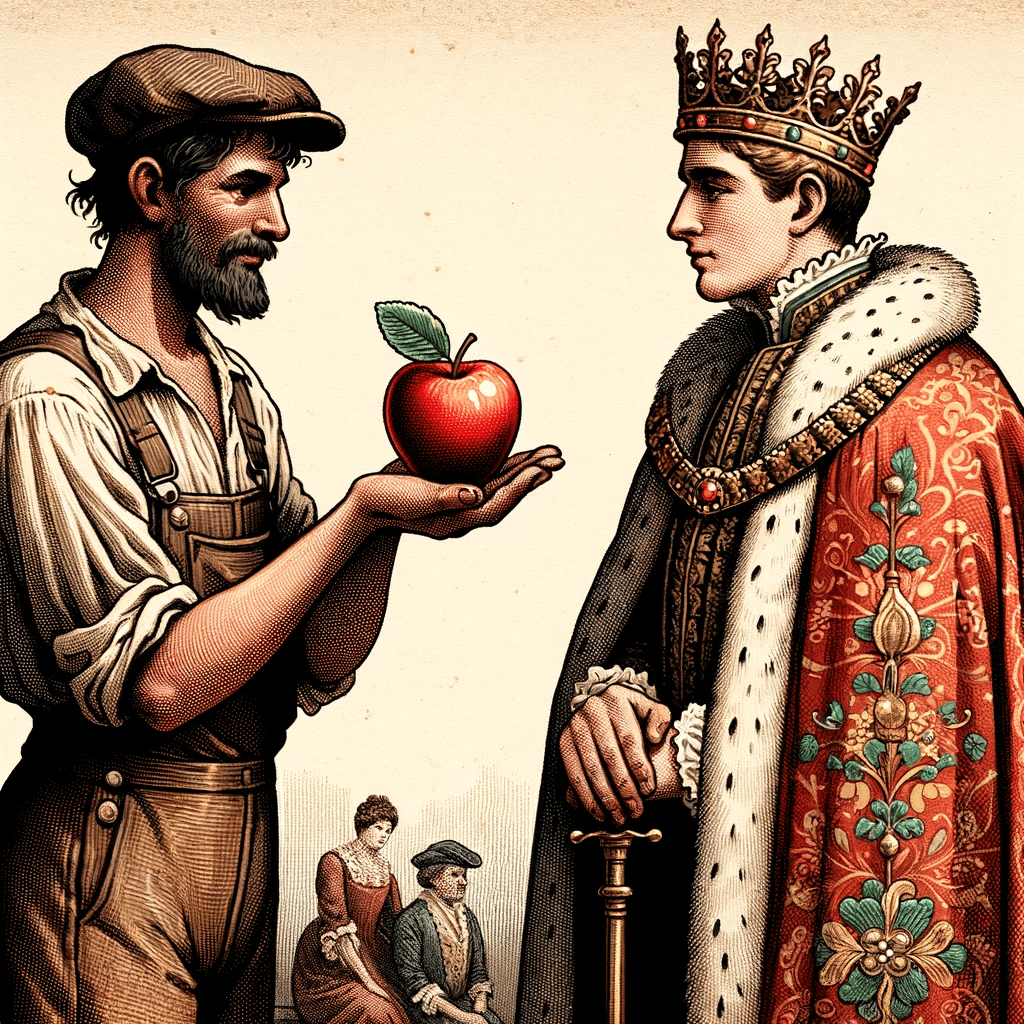
“If it pleases Your Majesty,” said he. “I am a poor gentleman…
“Aye, aye,” interrupted the King hastily; “and come to ask the King to make you rich. They all ask that.”
“No, sire,” said the poor gentleman. “I have but come to say ‘God bless Your Majesty,’ and to give you this,” and he took from his pocket the rosy-red, streaked-with-gold apple.
The very sight of it was enough to make any man’s mouth water, and the King was as human as any.
‘King Solomon himself liked an apple,” he said, taking the fruit from the poor gentleman; and he ate it from skin to core, before he spoke another word.
Nor is there any doubt that the apple was to his taste; for no sooner had he eaten it than he wrote with his own hand, a grant of certain orchard lands to Roger Fairlie, Gentleman. ‘Upon condition,” so the writing read, “that every year he bring or send an apple to the King.”
A prouder, happier, more astonished man than our poor gentleman, thus made a landed squire!
“Who would ever have thought,” he said to himself as he posted home as fast as Moll, the mare, could go, “that Father-in-law’s gift would be the making of our fortune?”
But when he got home, he found that his wife had often thought this very thing. And a well-pleased woman she was that her thought had come true.

